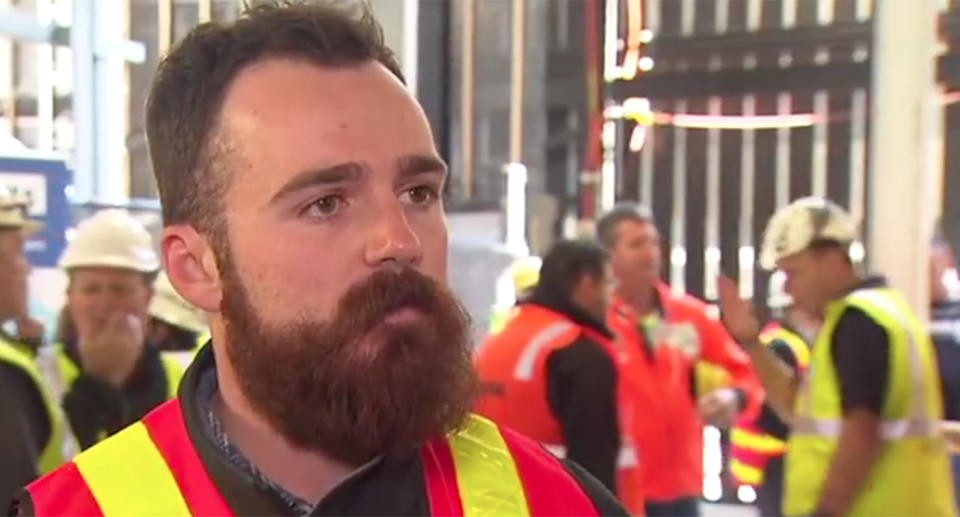The powerful message behind the colour of these construction worker's hats
Construction workers are banding together to fight back against rising suicide rates.
A new program has been designed to break down male stereotypes that workers often blame for preventing them asking for help.
One tradie, Jordan Cisek, lost a mate to suicide two years ago and still struggles to talk about it.
“It’ll be with me for the rest of my life, but I think I’m more inclined to open up and speak to friends and family,” Mr Cisek told 7 News.

It’s that open attitude that Blue Hats, a new program for construction workers, is based on.
A blue hat on a construction site signals a colleague who can talk, or just listen, to someone who might be struggling.
They’re not counsellors, but they do receive official training to help people share what’s happening behind the scenes.
Construction workers are fighting back against rising suicide rates. A new program has been designed to break down male stereotypes, that workers often blame for preventing them asking for help. @BlakeJohnson #7News pic.twitter.com/OM0j2l1tIT
— 7 News Melbourne (@7NewsMelbourne) October 10, 2018
“There’s a lot of work out there about introducing the conversation, but then just dropping it,” Dom Vigilanti from industry fund Incolink.
“We’re hoping the Blue Hats actually keeps the conversation going.”
Construction workers are over-represented in Australia’s suicide rates.
On average, eight people take their lives every day. Six are men and at least one is a construction worker.

Tight deadlines and often dangerous work environments are big factors in construction worker stress.
“I think there’s definitely a stigma, and almost a bravado, around the construction industry over how one should be,” Mr Cisek said.
Even a tough-as-nails union boss can see the Blue Hats benefits.
“You can be tough and resilient, but at the same time, be compassionate,” CFMEU Secretary John Setka said. “It’s about being compassionate and watching out for our workmates.”


